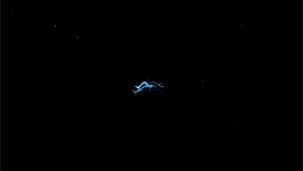Dear Fellow Critics,
It’s tough when the best film of the year comes out in February. Even worse when you don’t yet know it will be the best film. I’ve seen films as early as June and July that have pretty quickly declared themselves #1 in my heart, but traditionally we look forward to the festival circuit in September, or maybe an end of the year surprise, to really give us something special. So I had no intention of calling Get Out the best film of the year until it simply became inevitable.
I surprised myself with my year-end Top 10. I kept slotting other films at the top just to try it out, but nothing felt right and I couldn’t figure out why. White guilt? Why else did we not even review Get Out on the site in 2017? Personally, I may have felt somehow unqualified to tackle this racially-charged milestone movie - like it wasn’t my movie to claim. After all, isn’t appropriation what the whole film’s about?
But ultimately, I had to be honest with myself. There’s not a movie that I thought about more, talked about more, or that inspired me more (in terms of what films I want to support - and make). Get Out kicked every other film’s ass this year by being unapologetic with its politics, audacious with genre, and culturally on point.
Oh, not to mention it’s just fun as hell.
Even more so on a second viewing (for me, anyway). I had avoided all the film’s trailers, and I still went in expecting that whatever horror elements emerged would be… grounded. Instead, they were sunken. And while the visual treatment of this headspace was beautifully rendered, the decision to go there took me out of the film altogether. As someone who has undergone hypnosis publicly and privately multiples times, I have a very good understanding of how it works. You can’t just “get” hypnotized, you have to embrace it, accept it, and most of all, trust it. Clearly, none of these circumstances existed when Daniel Kaluuya’s character gets “tricknotized” (patent pending). Suddenly, I was out, because in movies and hypnosis, all it takes in one small thing to break the “spell” you’re under.
After all, films are a form of hypnosis. That’s really what we’re doing when we suspend our disbelief. We are trusting the filmmaker’s voices, surrendering ourselves to their power, and saying “I allow this to be true.” That’s how movies move us.
My personal hang-up initially robbed me of appreciating the film at a deeper level, even if all the technical merits were still in full evidence: The razor-sharp script that’s allergic to lulls. The perfect choice of actors and their perfect choices in every scene. The unforgettable close-ups and imagery throughout that are loaded with emotional complexity. All the pieces were right, and I thoroughly enjoyed the movie, I just thought some of it "didn’t work" (a favourite critic catch-all phrase to shield our personal biases). Then, because of that early release date, the film got the most powerful ally possible: time.
Now I had time to let go of the film. To find it again. To read some insight from writer/director Jordan Peele, and most importantly, to stop judging the film for what it isn’t (ie. realistic) and start judging the film for what it is (ie: truthful). I let the metaphor be the metaphor and guess what?
Boom. I was hypnotized. In the sunken place. And loving every minute of it.
Modern day slave trade? Yup, I buy it. Brain transplants? Sure! Peele never had to ask for these creative allowances, I somehow just wasn’t ready to grant them initially. That was on me. He was making a popcorn movie, not a documentary (despite what he’s jokes about on Twitter.) It just happens to have incredibly thoughtful touches throughout (picking cotton to save himself, among my favourite) to elevate it beyond what we normally associate with a popcorn movie.
In fact, it had all the elements to elevate it beyond every movie in 2017.
Sincerely,

Christopher




